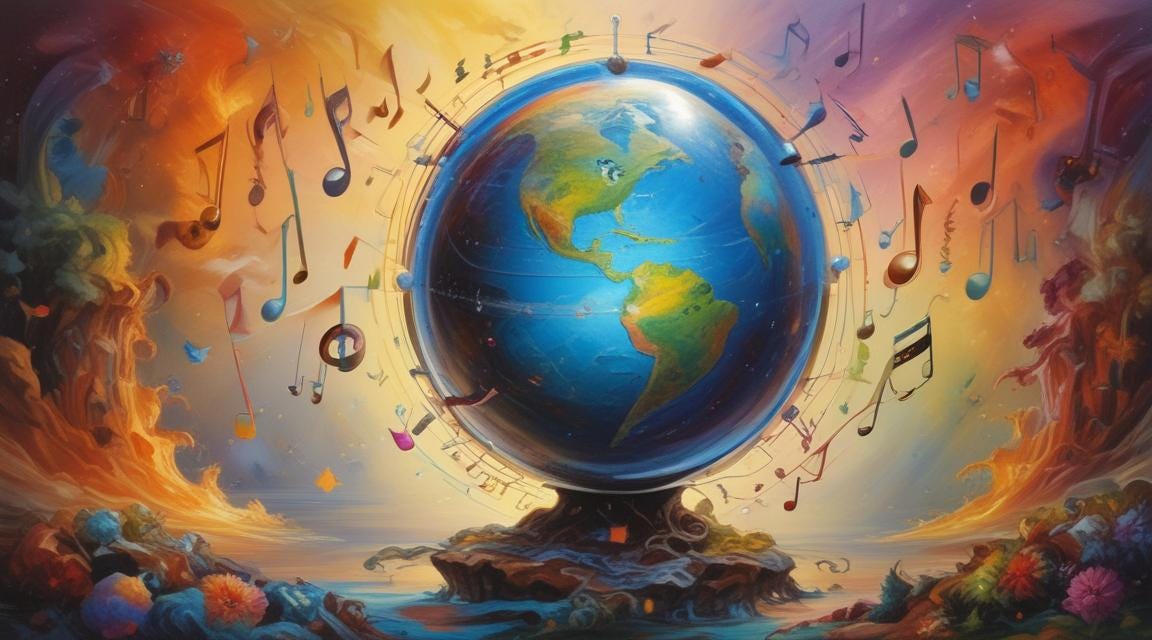The Music Of The Spheres
It’s All In The Math
When accepted science abandoned the earth-centric, concentric spheres model of the universe for the (admittedly) much more accurate Newtonian/Copernican model, something wonderful was lost - or at least, it has been temporarily lost, and maybe will return someday.
When ancient and medieval people looked up at the sky, they not only believed that it was a busy place populated by all sorts of beings, all functioning precisely according to the master plan, they also believed that as these spheres endlessly revolved around the earth gently influencing the stars and planets and all living things, they were singing as they mathematically inclined along their way. That's right, the universe is filled with music. Late Roman and medieval philosophers thought music was so important that it was included in the standard curriculum of higher education, along with mathematics, geometry and astronomy.
For thousands of years humans have acknowledged that there is something quite special and powerful about music. It seems to be so closely connected with our being, and with nature, yet we still find it mysterious and do not completely understand why it has such a profound effect on us. Pythagoras would say it is all in the math - and maybe he was right.
What we are discovering is something a medieval philosopher could have told us a thousand years ago - music has a remarkable effect on our intelligence, our motor skills, our ability to heal, our memory, and of course our psychological and emotional state.
Let's learn how we can incorporate more music into our lives, not just for pleasure (although it is all of that), but also to become more intelligent, happier, and healthier human beings.



